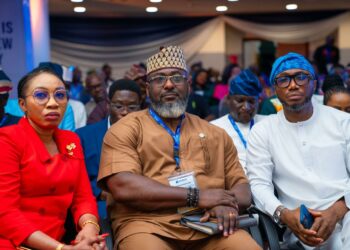According to data released Monday by the Nigerian Communications Commission (NCC), the losses were particularly heavy for Globacom and 9mobile, as both operators deactivated millions of unverified SIMs during the exercise, which concluded on September 14.
Globacom, which had 62.1 million active subscriptions as of March 2024, saw its subscriber base shrink drastically to 19.1 million by the end of September, losing 43 million lines. Similarly, 9mobile, which had been struggling with customer retention in recent years, ended September with just 3.6 million active subscriptions, down from 11.6 million in March—an 8 million subscription drop.
The combined effect of the verification exercise left Nigeria’s four GSM operators with 154.6 million active subscriptions in September, down from 219 million in March.
Despite the database clean-up, MTN Nigeria maintained its market leadership with 78 million active subscriptions as of September, though it lost 3.7 million subscribers from the 81.7 million reported in March.
Airtel Nigeria, which holds the second spot, recorded 53.7 million active subscriptions at the end of September, down from 63.3 million in March—a loss of 9.6 million lines.
Though MTN and Airtel fared better than Globacom and 9mobile, the losses are expected to affect their Q3 2024 earnings. In its June 30 financial report, Airtel Africa, the parent company of Airtel Nigeria, warned that the verification process could reduce its monthly revenue by as much as $4 million, with 4.9 million subscribers yet to complete NIN verification by that time.
Earlier this year, MTN disclosed that it disconnected 4.2 million lines that lacked NIN linkage as of February 28, but noted that the disconnections had minimal financial impact, as the affected users were categorised as “low-value subscribers.”
Telecom analyst Adewale Adeoye described the verification exercise as a milestone for the industry. “This is a positive step for Nigeria. It ensures that every telecom user is now properly identified, which promotes safer usage of communication services,” Adeoye told NATIONAL ECONOMY.
He added that the sanitised database could also aid security efforts. “If the security agencies fail to utilise this data, the entire exercise would have been a waste of time and resources,” he warned.
Earlier this month, the executive vice chairman of the NCC, Dr. Aminu Maida, announced the successful completion of the NIN-SIM linkage initiative, which began in 2020. “Every active mobile number in Nigeria is now linked with a verified NIN,” Maida said during the 2024 Corporate Governance Conference in Lagos.
He emphasised that the process ensures accountability. “If any phone number is used for fraud or crime, we can now accurately trace it to the user based on their NIN,” he added.
The NIN-SIM linkage program began in December 2020, when the government directed telecom operators to block SIMs that were not registered or linked to NINs. Multiple deadlines were extended until the NCC set September 14, 2024, as the final date for verification.
In late July, many subscribers found their lines blocked, causing confusion and long queues at telecom stores. The situation escalated as protests were scheduled between August 1 and 10, forcing the NCC to temporarily lift the restrictions and allow more time for users to complete their NIN-SIM linkage.
With the process now finalised, the NCC has confirmed that only verified NIN-linked lines remain active, marking a new era for Nigeria’s telecom industry.





